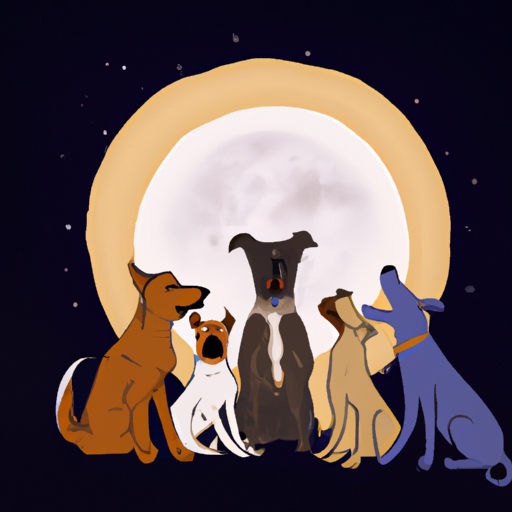Understanding Your Dog’s Howl
Your dog’s howl can be a fascinating, albeit sometimes frustrating, part of their personality. While it might seem like just another loud noise in your ear, this vocalization has a deeper meaning. In the wild, dogs and their ancestors use howling as a form of long-distance communication. It’s their way of maintaining contact with the pack, expressing emotions, and signaling their location.
Interpreting the Howling
To understand what your dog is trying to communicate, you need to consider the context, frequency, and triggers of their howling.
- Context: Look at what’s happening around your dog when they howl. Does it occur during certain times of the day, or when they’re left alone?
- Frequency: Does your dog howl often, or is it a rare occurrence? Frequent howling could be a sign of distress.
- Triggers: Identify anything that consistently provokes your dog’s howling. A particular sound, such as a siren or another dog’s howl, could be the trigger.
| Context | Frequency | Triggers |
|---|---|---|
| Alone/home alone | Often | Sirens |
| During playtime | Rare | Other dogs |
| When anxious or scared | Frequent | Specific sounds |
The Emotional State of Your Dog
A howling dog can be expressing a range of emotions. For example, a dog might howl out of happiness when they see you come home, or out of fear during a thunderstorm. This can also be a sign of separation anxiety, especially if it happens when they’re left alone. In addition to these emotional states, physical discomfort or illness can provoke howling. If your dog’s howling is accompanied by other signs of distress, it’s important to consult with a veterinarian.
Training Your Dog to Reduce Howling
While understanding your dog’s howling is important, you may also want to control this behavior, especially if it becomes disruptive. Here are some strategies to manage your dog’s howling:
- Positive Reinforcement: Reward your dog for quiet behavior, and ignore them when they howl.
- Desensitization and Counterconditioning: Gradually expose your dog to the triggers of their howling, and provide positive experiences to change their response.
- Professional Help: If your dog’s howling is due to anxiety or a behavioral issue, consult a professional dog trainer or a veterinary behaviorist.
Frequently Asked Questions
Q: Why does my dog howl when I play music?
A: Dogs may howl in response to high-pitched sounds like music or sirens, mimicking the noise or expressing their excitement or discomfort.
Q: Is howling a sign of pain in dogs?
A: Yes, dogs can howl when they’re in physical discomfort or pain. If your dog’s howling is accompanied by other signs of distress, consult a vet immediately.
Q: Can I train my dog to stop howling?
A: Yes, through positive reinforcement, desensitization, and counterconditioning, you can manage your dog’s howling. If necessary, seek professional help.
Q: Do all dogs howl?
A: No, not all dogs howl. It often depends on their breed, environment, and individual personality.
Remember, your dog’s howling is their way of expressing themselves. Understanding and addressing this behavior can help you strengthen your bond with your furry friend.



